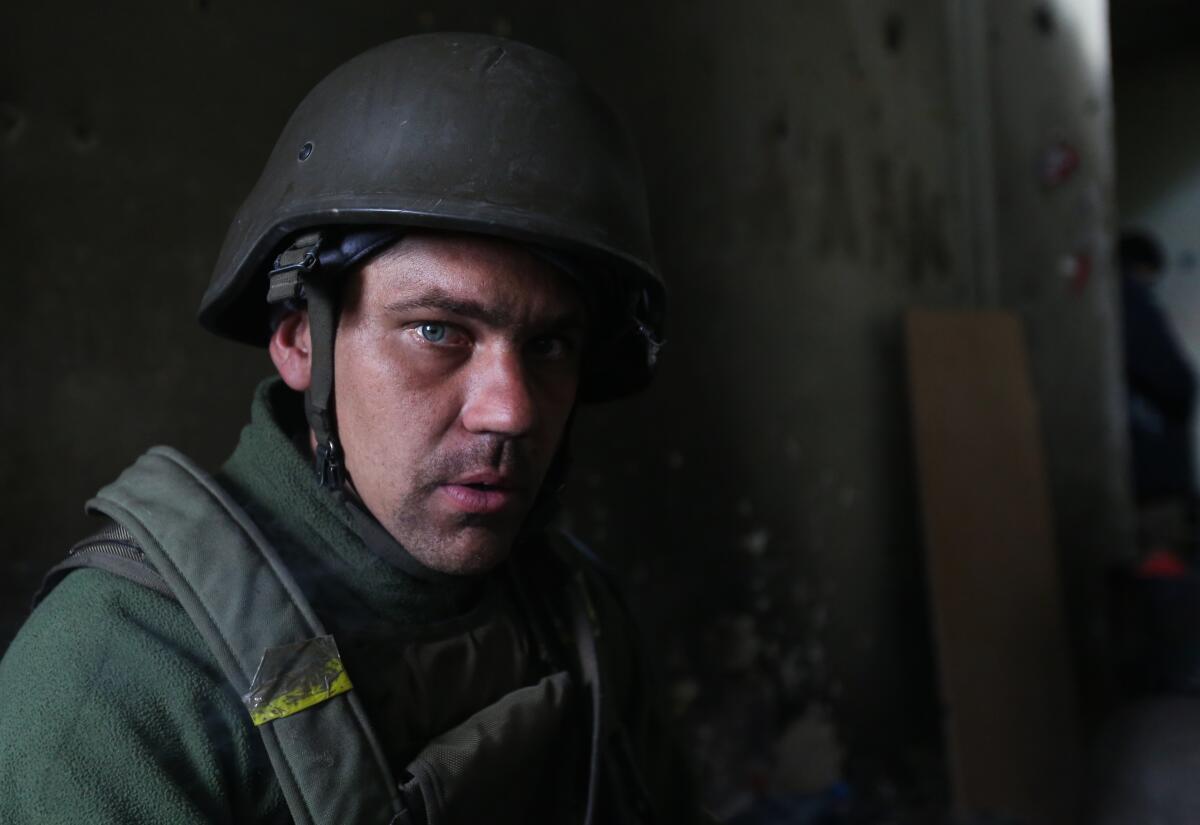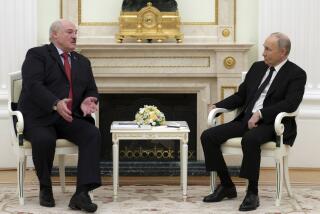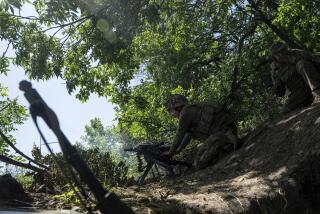War and peace are on the line in Ukrainian parliamentary vote Sunday

Sergei Tanasov is considered a war hero in Ukraine for his role in defending the Donetsk airport from a months-long assault by Russian-backed separatists in 2014. Today, as a candidate for parliament, he is running on the one issue that dominates political life in Ukraine: ending the war and finding a way to fend off Russian President Vladimir Putin.
“To make a deal with Putin is a defeat,” Tanasov said in a phone interview. “But to try and win the war militarily is insane.”
That, in a nutshell, is the dilemma facing Ukraine and its new president, the comedian-turned-politician Volodymyr Zelensky, whose first major act in office was to call snap parliamentary elections that will be held Sunday. The Russian-backed rebels continue to hold parts of eastern Ukraine along the Russian border, and Russia continues to defy international law by occupying the Crimean peninsula, which it annexed in 2014.
To Tanasov, running as a member of former President Petro Poroshenko’s European Solidarity party, the answer lies with the European Union and the United States. “We need all the political help from the West we can get,” he said. “We need tougher sanctions against Russia.”
Zelensky has taken a different approach, saying he would stop the war by fulfilling two peace deals with Russia known as the Minsk accords. The agreements, brokered by European leaders and signed in 2014, called for the withdrawal of heavy weaponry from the front line, international monitoring and the release of prisoners, but they have been largely ignored by the separatists and Ukrainian forces.
“We are ready to follow the provisions of all Minsk accords to achieve peace at last,” Zelensky said in remarks to the German news agency Deutsche Welle earlier this month. Zelensky spoke with Putin by phone on July 5, but details of the conversation have not been disclosed.
Zelensky has also called for a nationwide referendum on the status of Donbas, the disputed eastern region that is still partly held by separatists. He will need support from parliament to accomplish that, as well as his proposal for a law banishing Poroshenko and other high officials associated with the former president from occupying top positions in the future.
According to recent polls, Zelensky’s Servant of the People party is leading the field of 22 parties with support from more than 45% of potential voters. That is not enough to claim a constitutional majority of 226 deputies, in part because only half the parliament is elected on party slates; the other half consists of unaligned candidates.
The pro-Russia Opposition Platform for Life party is polling at about 12%, followed by Poroshenko’s party and the party of former Prime Minister Yulia Tymoshenko.
Voting will not take place in Crimea and in the occupied territories of Donbas.
Turnout nationwide is expected to be just over 50%. While Zelensky has energized many voters, especially the young, others are disillusioned by the lack of progress in ending the war and the corruption that has characterized Ukrainian government since the country gained independence following the breakup of the Soviet Union in 1991.
“I see no reason why I should vote,” said Vadim Dyachenko, who was driven from his home in the Donbas region by the war and now lives in Kiev, the capital. He fled the city of Luhansk, which was captured by separatists and is now the declared capital of the self-proclaimed Luhansk People’s Republic. He said he felt no civic duty to a country that “doesn’t care for me.”
“My family and the rest of the residents of Luhansk, and Donbas in general, feel betrayed both by Russia and Ukraine,” said Dyachenko, a taxi driver. “Russia doesn’t want to incorporate the two regions, and Ukraine is doing nothing to get them back. Hundreds of thousands of people are living hung in limbo without any peace prospect in sight.”
Loiko is a Times special correspondent.
More to Read
Start your day right
Sign up for Essential California for news, features and recommendations from the L.A. Times and beyond in your inbox six days a week.
You may occasionally receive promotional content from the Los Angeles Times.






